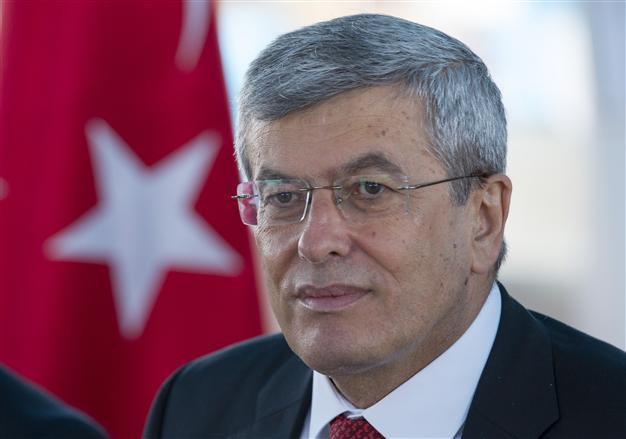Fight against Gülenists judges will continue: Justice Minister
Serkan Demirtaş - ANKARA

AA Photo
Turkey’s judicial disciplinary board will continue to fight against judges who have allegedly been receiving orders from the powerful Fethullah Gülen community during controversial cases, the justice minister has said.“The HSYK [Judges and Prosecutors’ Supreme Board] is evaluating complaints about past proceedings. In the event illegal activities [committed by judges] are found, the necessary action will be taken. Turkey is a country under the rule of law. And under the rule of law, nobody can receive orders from other places,” Justice Minister Kenan İpek told Ankara bureau chiefs at a meeting on Oct. 7. “The HSYK has announced that it has started to work on this. This will continue until wherever it goes.”
The minister’s statement came as the victims in the controversial Ergenekon case, in which a number of high-ranking generals, prominent journalists, civil society members and intellectuals were convicted to long-term imprisonment for allegedly trying to topple the Justice and Development Party (AKP) government in its early years in power, have begun to testify against the judges in the particular case. These judges who have already been dismissed from their jobs are allegedly members of the Gülen community, dubbed the parallel state, aiming to seize control of the state.
İpek said it was impossible to accept judges receiving orders from another place, saying, “Believing in the principle of the discretion of the judge does not mean that the judges are immune from being prosecuted.”
The minister said the Turkish people appreciated the government’s fight against these judiciary personnel. “The Turkish people is waiting for justice from us; it is seeking its rights. No one should doubt it, we’ll do whatever is necessary.”
Interpol returns Turkey’s red bulletin demands
On Zekeriye Öz and Celal Kara, two prosecutors in the controversial cases who are believed to be in Germany, İpek said they had made the necessary demands for their deportation on the basis of a bilateral judicial assistance agreement but that they had not received a reply.
‘Criticism and insults are different things’
On the growing number of cases over insults allegedly directed at President Recep Tayyip Erdoğan, İpek said such laws protecting the dignity of presidents and other top leaders also existed in many European countries.
“We have studied almost all European countries’ laws. Insults toward the presidents are also considered a crime. Some countries issue penalty fines, some others imprisonment. Our judges separate insult from criticism,” he claimed.
















